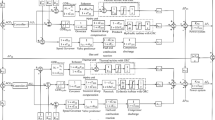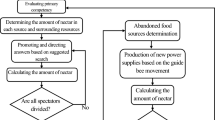Abstract
In this paper monitor lizard optimization algorithm based on class room learning algorithm (MLCL) is designed to solve the optimization problem. Key objectives are power loss reduction, voltage stability enhancement and voltage deviation minimization. When power loss reduction has been done in the electrical transmission network then it will economically improves the whole system. Equally system stability is based on the voltage stability amplification and voltage deviation minimization. In monitor lizard optimization algorithm (MLA) movement of the prey and environmental issues are considered in the modeling. The monitor lizard does the Brownian movement and Victim (prey) performs the levy movement. Population has been divided for exploration and exploitation. Monitor lizard is accountable for exploration and Victim (prey) is in charge for exploitation. Natural issues will have impact over the action of preying and that has been included in the modeling of the algorithm. Action of species (AS) has been considered and included as a factor in the modeling of the algorithm. Then class room learning algorithm (CLA) is designed which based on how the learner gains the knowledge form tutor and co learner. The designed algorithm possesses two segments—Tutor segment and learner segment. Mutation and crossover of differential evolution is added in the hybridized MLCL algorithm. At first the tutor segment is intermingled in the procedure such that learning about the victim (prey) information will be enhanced. By considering L (voltage stability)—index MLCL verified in IEEE 30-bus system. Then without L-index MLCL optimization algorithm is appraised in 30 bus test systems. Monitor lizard optimization algorithm based on class room based learning algorithm condensed the power loss competently with augmentation in voltage stability and minimization of voltage deviation.






Similar content being viewed by others
Abbreviations
- OBF:
-
Minimization of the objective function
- L and M :
-
Control and dependent variables of the optimal reactive power problem
- r :
-
Consist of control variables
- \(\left( {Q_{c} } \right)\) :
-
Reactive power compensators
- T :
-
Dynamic tap setting of transformers
- \(\left( {V_{g} } \right)\) :
-
Level of the voltage in the generation units
- u :
-
Consist of dependent variables
- \(PG_{slack}\) :
-
Slack generator
- \(V_{L}\) :
-
Voltage on transmission lines
- \(Q_{G}\) :
-
Generation unit’s reactive power
- \(S_{L}\) :
-
Apparent power
- NTL:
-
Number of transmission line indicated by conductance of the transmission line between the \(ith\;{\text{and}}\;jth\) buses, \(\O_{ij}\). Phase angle between buses i and j
- \(V_{Lk}\) :
-
Load voltage in \(kth\) load bus
- \(V_{Lk}^{\rm desired}\) :
-
Voltage desired at the \(k{\rm th}\) load bus
- \(Q_{GK}\) :
-
Reactive power generated at \(k{\rm th}\) load bus generators
- \(Q_{KG}^{\rm Lim}\) :
-
Reactive power limitation
- \(N_{LB} \;{\text{and}}\;Ng\) :
-
Number load and generating units
- Tt:
-
Transformer tap
- Gen volt:
-
Generator voltage
References
Lee, K.Y.: Fuel-cost minimisation for both real and reactive-power dispatches. Proc. Gener. Transm. Distrib. Conf. 131(3), 85–93 (1984)
Deeb, N.I.: An efficient technique for reactive power dispatch using a revised linear programming approach. Electr. Power Syst. Res. 15(2), 121–134 (1998)
Bjelogrlic, M.R., Calovic, M.S., Babic, B.S.: Application of Newton’s optimal power flow in voltage/reactive power control. IEEE Trans. Power Syst.em 5(4), 1447–1454 (1990)
Granville, S.: Optimal reactive dispatch through interior point methods. IEEE Trans. Power Syst. 9(1), 136–146 (1994). https://doi.org/10.1109/59.317548
Grudinin, N.: Reactive power optimization using successive quadratic programming method. IEEE Trans. Power Syst. 13(4), 1219–1225 (1998). https://doi.org/10.1109/59.736232
Khan, I., Li, Z., Xu, Y., Gu, W.: Distributed control algorithm for optimal reactive power control in power grids. Int. J. Electr. Power Energy Syst. 83, 505–513 (2016)
Li, J., Wang, N., Zhou, D., Hu, W., Huang, Q., Chen, Z., Blaabjerg, F.: Optimal reactive power dispatch of permanent magnet synchronous generator-based wind farm considering levelised production cost minimisation. Renew. Energy. 145, 1–12 (2020)
Valipour, K., Ghasemi, A.: Using a new modified harmony search algorithm to solve multi-objective reactive power dispatch in deterministic and stochastic models. J. AI Data Min. (JAIDM) 5(1), 89–100 (2017)
Barakat, A.F., El-Sehiemy, R.A.-A., Elsaid, M.: Close accord on particle swarm optimization variants for solving non-linear optimal reactive power dispatch problem. Int. J. Eng. Res. Afr. 46, 88–105 (2020). https://doi.org/10.4028/www.scientific.net/JERA.46.88
Sahli, Z., Hamouda, A., Bekrar, A., Trentesaux, D.: Hybrid PSO-tabu search for the optimal reactive power dispatch problem. In: IECON 2014 – 40th Annual Conference of the IEEE Industrial Electronics Society, pp. 3536–3542 (2014)
Mouassa, S., Bouktir, T., Salhi, A.: Ant lion optimizer for solving optimal reactive power dispatch problem in power systems. Eng. Sci. Technol. Int. J. 20(3), 885–895 (2017)
Mandal, B., Roy, P.K.: Optimal reactive power dispatch using quasi-oppositional teaching learning based optimization. Int. J. Electr. Power Energy Syst. 53, 123–134 (2013)
Khazali, H., Kalantar, M.: Optimal reactive power dispatch based on harmony search algorithm. Int. J. Electr. Power Energy Syst. 33(3), 684–692 (2011)
Tran, H.V., Pham, T.V., Pham, L.H., Le, N.T., Nguyen, T.T.: Finding optimal reactive power dispatch solutions by using a novel improved stochastic fractal search optimization algorithm. Telecommun. Comput. Electron. Control 17(5), 2517–2526 (2019)
Polprasert, J., Ongsakul, W., Dieu, V.N.: Optimal reactive power dispatch using improved pseudo-gradient search particle swarm optimization. Electr. Power Compon. Syst 44(5), 518–532 (2016)
Duong, T.L., Duong, M.Q., Phan, V.-D., Nguyen, T.T.: Optimal reactive power flow for large-scale power systems using an effective metaheuristic algorithm. Hindawi J. Electric. Comput. Eng. 6382507, 11 (2020). https://doi.org/10.1155/2020/6382507
Halliday, D., Resnick, R., Walker, J.: Fundamentals of Physics. Wiley, Hoboken (2013)
Eiben, A.E., Schippers, C.A.: On evolutionary exploration and exploitation. Fundam. Inform. 35, 35–50 (1998)
MATPOWER 4.1 IEEE 30-bus and 118-bus test system, http://www.pserc.cornell.edu/matpower. Accessed 20 Jan 2019
Illinois Center for a Smarter Electric Grid (ICSEG). https://icseg.iti.illinois.edu/ieee-30-bussystem/. Accessed 25 Feb 2019
Dai, C., Chen, W., Zhu, Y., Zhang, X.: Seeker optimization algorithm for optimal reactive power dispatch. IEEE T. Power Syst. 24(3), 1218–1231 (2009)
Subbaraj, P., Rajnarayan, P.N.: Optimal reactive power dispatch using self-adaptive real coded Genetic algorithm. Electr. Power Syst. Res. 79(2), 374–438 (2009)
Pandya, S., Roy, R.: Particle swarm optimization based optimal reactive power dispatch. In: Proceeding of the IEEE International Conference on Electrical, Computer and Communication Technologies (ICECCT), vol. 1, no 1, pp. 1–5 (2015)
Hussain, A.N., Abdullah, A.A., Neda, O.M.: Modified particle swarm optimization for solution of reactive power dispatch. Res. J. Appl. Sci. Eng. Technol. 15(8), 316–327 (2018). https://doi.org/10.19026/rjaset.15.5917
Vishnu, M.S.: An improved solution for reactive power dispatch problem using diversity-enhanced particle swarm optimization. Energies 13, 2862 (2020). https://doi.org/10.3390/en13112862. (Pp 2-21)
Muhammad, Y., Khan, R., Raja, M.A.A., Ullah, F., Chaudhary, N.I., He, Y.: Solution of optimal reactive power dispatch with FACTS devices: a survey. Energy Rep. 6, 2211–2229 (2020). https://doi.org/10.1016/j.egyr.2020.07.030
Das, T., Roy, R., Mandal, K.: Solving Optimal Reactive Power Dispatch Problem with the Consideration of Load Uncertainty using Modified JAYA Algorithm. 1–6. (2021) https://doi.org/10.1109/ICAECT49130.2021.9392508.
Das, T., Roy, R., Mandal, K.K.: Integrated PV system with optimal reactive power dispatch for voltage security using JAYA Algorithm. In: 2021 7th International Conference on Electrical Energy Systems (ICEES), 2021, pp. 56–61, https://doi.org/10.1109/ICEES51510.2021.9383711
Muhammad, Y., Akhtar, R., Khan, R., et al.: Design of fractional evolutionary processing for reactive power planning with FACTS devices. Sci. Rep. 11, 593 (2021). https://doi.org/10.1038/s41598-020-79838-2
Shanono, I.H., Muhammad, A., Abdullah, N.R.H., et al.: Optimal reactive power dispatch: a bibliometric analysis. J. Electric. Syst. Inf. Technol. 8, 1 (2021). https://doi.org/10.1186/s43067-020-00024-5
Tudose, A.M., Picioroaga, I., Sidea, D.O., Bulac, C.: Solving single- and multi-objective optimal reactive power dispatch problems using an improved Salp swarm algorithm. Energ MDPI Open Access J. 14(5), 1–20 (2021)
Author information
Authors and Affiliations
Corresponding author
Additional information
Publisher's Note
Springer Nature remains neutral with regard to jurisdictional claims in published maps and institutional affiliations.
Rights and permissions
About this article
Cite this article
Kanagasabai, L. Real power loss reduction by monitor lizard optimization algorithm based on class room learning. Energy Syst 13, 335–354 (2022). https://doi.org/10.1007/s12667-021-00481-5
Received:
Accepted:
Published:
Issue Date:
DOI: https://doi.org/10.1007/s12667-021-00481-5




